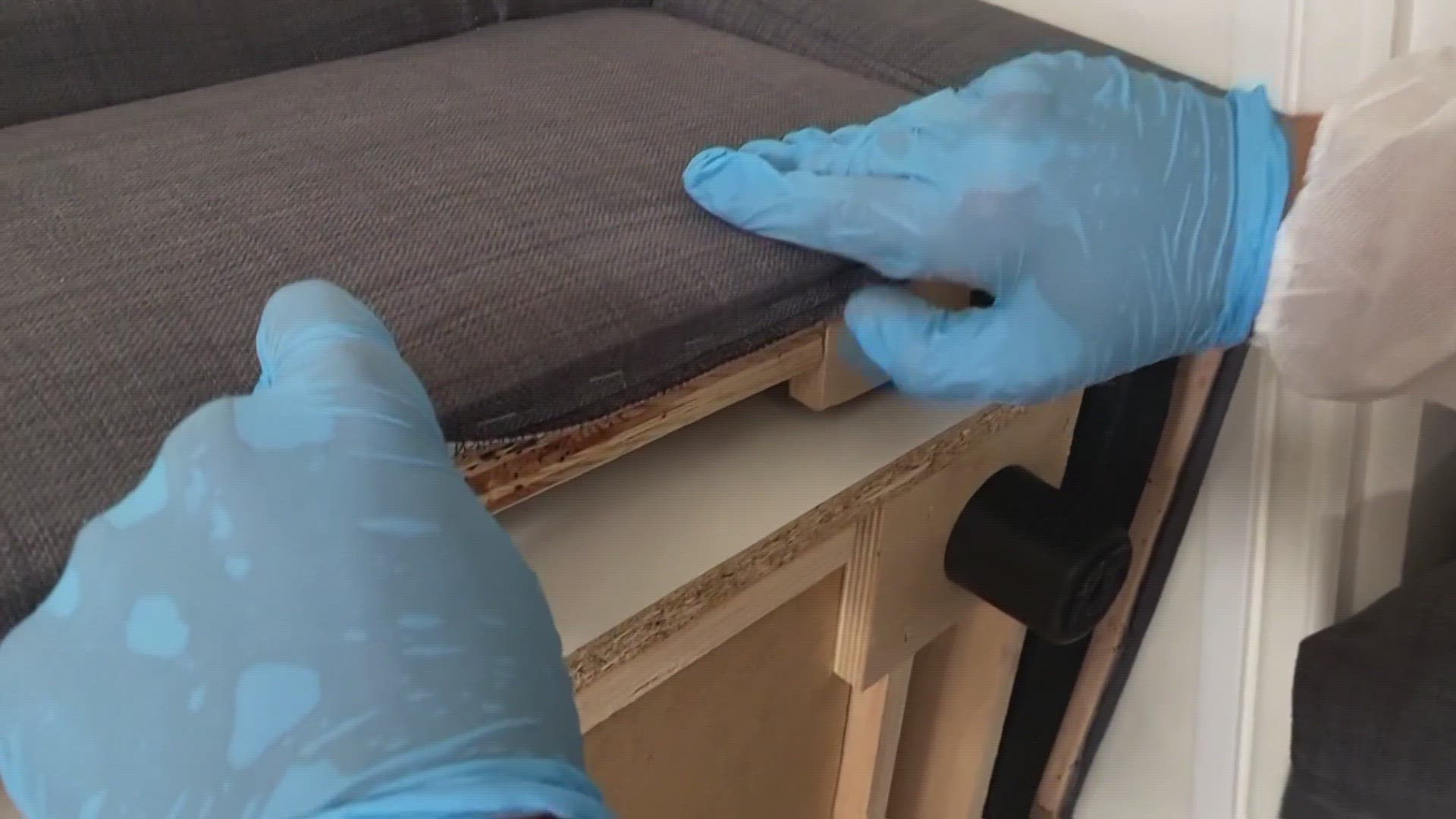GENEVA, Switzerland — After nearly 20 months of waging war in Ukraine, Russia was suspended by the IOC on Thursday for a land grab in sports administration.
The International Olympic Committee's executive board imposed the suspension on the Russian Olympic Committee for a breach of the Olympic Charter — a book of rules and principles for international sports bodies — by incorporating sports councils in four regions in eastern Ukraine.
The suspension does not immediately affect any Russians who are returning to compete in international sports as neutral athletes, including in some qualifying events for next year's Paris Olympics.
Russian Olympic officials provoked the dispute last week by accepting the councils in Donetsk, Kherson, Luhansk and Zaporizhzhia as its members.
“(This) unilateral decision,” the International Olympic Committee said in a statement from Mumbai, India, “constitutes a breach of the Olympic Charter because it violates the territorial integrity of the NOC of Ukraine, as recognized by the International Olympic Committee (IOC) in accordance with the Olympic Charter.”
The IOC didn't suspend the Russian Olympic body for a similar move in 2016, more than two years after the annexation of the Crimean peninsula. Russian media reported in December 2016 that the sports councils of Crimea and Sevastopol were included as ROC members. International law still recognizes the region as part of Ukraine.
Still, the decision Thursday to suspend the ROC appears to highlight rising frustration from the IOC and its president, Thomas Bach, who can ultimately decide to impose a blanket ban on all Russian athletes from Paris.
"(The IOC) reserves the right to decide about the participation of individual neutral athletes with a Russian passport in the Olympic Games Paris 2024 and the Olympic Winter Games Milano Cortina 2026 at the appropriate time,” the IOC said.
The Russian Olympic Committee criticized the IOC for “another counterproductive decision with obvious political motivations.”
However, the IOC under Bach has often been seen as too sympathetic to Russia during a decade-long doping scandal by never excluding all the country's athletes and teams from any Olympics despite proven allegations of state-backed cheating and tampering with evidence.
The latest decision by the IOC board comes seven months after it publicly supported Russian athletes by advising governing bodies of Olympic sports to find ways of including them in qualifying events for the Paris Games.
That IOC policy to ease a blanket ban was in defiance of calls from Ukrainian President Volodymyr Zelenskyy and many Ukrainian athletes to maintain the exclusion of athletes from Russia and Belarus.
Instead, each Olympic sport was asked to evaluate if individual athletes had not actively supported the war and were not contracted to the military or state security agents. The centralized approach has led to apparently inconsistent results, such as wrestling approving Olympic gold medalists who appeared on stage at a pro-war rally in Moscow.
Those vetting processes by different sports will continue despite the IOC suspension imposed Thursday, which does not affect Belarus.
“The suspension of the national Olympic committee doesn’t affect in any way the participation of independent athletes,” IOC spokesman Mark Adams said at a news conference after the board meeting.
Adams said the Russian Olympic Committee had been informed of its suspension before the IOC announced it publicly.
Russia remains excluded from international events in team sports, despite a short-lived and failed attempt this month by European soccer body UEFA to put Russian under-17 teams into qualifying groups for their European Championship.
The new ban removes the right of the ROC to get funding from the Switzerland-based IOC, which is worth millions of dollars in each four-year Olympic funding cycle. Russian officials reportedly have been weighing legal action to access the money that was not being paid during the war.
The Russian Olympic Committee could challenge the IOC decision at the Court of Arbitration for Sport in Lausanne, Switzerland.
“ROC, as a participant in the international sports movement, reserves the right to protect its own interests, as well as the interests of athletes and organizations of a sovereign country, which we represent in good faith,” the Russian Olympic body said.

